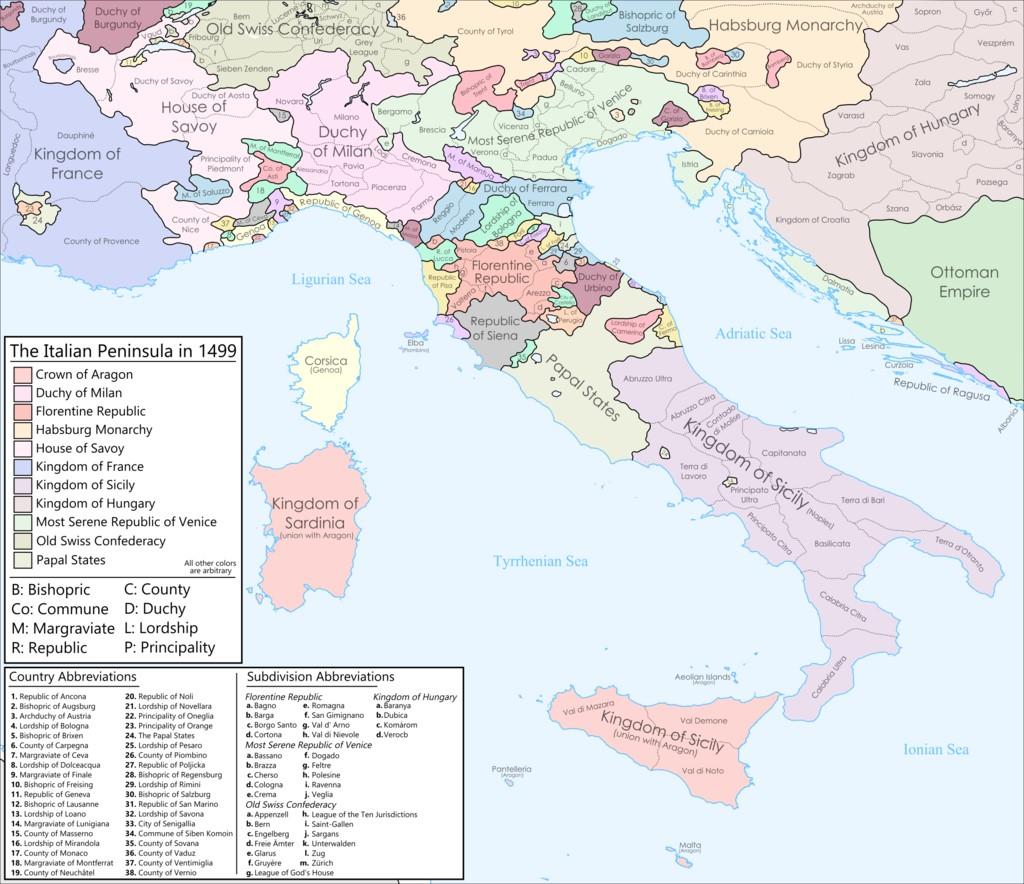Over the past year and a half, we have seen some of the largest divides in US state policy in recent history. Certain states such as California have implemented heavy lockdowns, mask mandates, curfews, and other restrictions for months on end, whereas states such as South Dakota never had an official lockdown to begin with. There is now also the heated policy issue of vaccine mandates, with certain locations such as New York City and Los Angeles requiring proof of vaccination to enter almost any indoor establishment, whereas states such as Florida have outlawed the use of vaccine passports entirely.
Although it is disconcerting that certain states have chosen to enact such draconian policies, we can at least take solace in the fact that this huge divide in state policy is a step toward decentralization and self-determination.
The European Miracle
In his essay, “The Theory of Economic Development and the European Miracle” , Ralph Raico discusses how competition between the culturally similar but jurisdictionally distinct European city-states of the Middle Ages was largely responsible for the progress and economic growth that was seen in Europe in that era. Raico writes that:
the key to western development is to be found in the fact that, while Europe constituted a single civilization—Latin Christendom—it was at the same time radically decentralized. In contrast to other cultures—especially China, India, and the Islamic world—Europe comprised a system of divided and, hence, competing powers and jurisdictions.
Raico stresses that the success of this system stemmed from the fact that although the area was radically decentralized in terms of jurisdictions, much of the region shared a common culture, and large areas comprising numerous jurisdictions all shared a common language. These factors meant that a peasant living under an especially tyrannical lord would find it relatively easy to relocate to a nearby jurisdiction while mostly maintaining his native culture and language. This is in stark contrast to a region of large states with unique cultures and languages, which would require traveling hundreds or thousands of miles to an unfamiliar region to escape a tyrannical jurisdiction. This possibility of movement put a check on the overreach of princes, meaning that they risked a mass exodus of their population if they excessively abused their power. Raico states:
Within this system, it was highly imprudent for any prince to attempt to infringe property rights in the manner customary elsewhere in the world. In constant rivalry with one another, princes found that outright expropriations, confiscatory taxation, and the blocking of trade did not go unpunished. The punishment was to be compelled to witness the relative economic progress of one’s rivals, often through the movement of capital, and capitalists, to neighboring realms. The possibility of “exit,” facilitated by geographical compactness and, especially, by cultural affinity, acted to transform the state into a “constrained predator.”
Source: TheWiseBeluga.
In a system of numerous independent jurisdictions, each state is pressured to maintain its population by competing for the favor of its citizens. One could almost consider this a “free market” in states, with states that did an especially poor job of meeting citizens’ demands suffering losses in the form of population emigration.
We already see this happening in the United States in the form of large migrations over the past year and a half from states such as New Jersey and New York to states such as Florida and South Carolina. People have voted with their feet, with large numbers choosing to relocate to live in an area that better fits their set of values and beliefs. A statewide policy is easier to escape than a nationwide one, and we can be thankful that many of the most extreme political reactions have been isolated to the local and state level.
If US states are allowed to act independently, there is a greater chance for competition between jurisdictions, which incentivizes states to provide a higher quality of life to their citizens in order to maintain their productive population and to attract newcomers. The US also has the added benefit of possessing a common language and a relatively shared culture, meaning people will have an easier time relocating from one state to another. This makes mass migrations in response to authoritative overreach more plausible. Additionally, the increasingly digitized world has loosened geographical ties to jobs, making this option even more realistic. All these factors make it more likely that states will be held accountable for decisions their politicians make, with less oppressive states outperforming neighboring jurisdictions economically and culturally.
Additionally, this effect of state competition is weakened by the fact that most taxes in the US are paid to the federal government rather than state governments, meaning the state one lives in is less important in determining one’s level of taxation. The US could benefit from following the Swiss system of taxation, wherein the majority of taxes are paid to one’s local jurisdiction and only a small percentage to the federal level.
Even with these issues, the move toward decentralized power is the best chance the United States has for achieving a more voluntary society, in which people have a greater say over the rules and authority that they live under.
In allowing people to vote with their feet, decentralized jurisdictions allow people to achieve a higher level of self-determination than they would be able to under a central federal government. We can learn the benefits of decentralized jurisdictions through the history of the European city-states, and we can apply this to the United States’ current political landscape. When decisions are made at the local level, there is more accountability, individual representation, and opportunity for people to escape regimes that do not reflect their own set of values and beliefs.
Full story here Are you the author? Previous post See more for Next postTags: Featured,newsletter






















